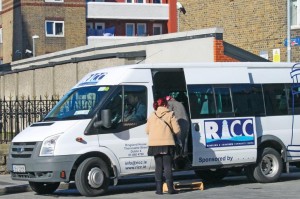
Senior Help Line (SHL) is a unique service for older people in that it’s manned by a team of volunteers who are themselves seniors. Many older people prefer to have someone in their own age group to discuss their issues with, feeling they can relate to them in a manner younger people may not be able to.
The helpline is supported by the Health Service Executive (HSE) and The Atlantic Philanthropies (TAP). The latter is an organisation based in both the US and Ireland, its mission statement is to, “bring about lasting changes in the lives of disadvantaged and vulnerable people,” and it encourages a view of elderly people as assets rather than burdens.
Isolation is the reason behind most of the calls to Senior Help Line, which received over 6,200 calls from the greater Dublin area last year. “The huge volume of calls received by the helpline in 2013 is reflective of the concerns and worries elderly people are experiencing in Ireland today,” says Aine Brady, CEO of SHL. “We are seeing an increase in demand for our services and, worryingly, we are receiving twice as many calls as we can answer.”
The line was launched in 1998 and is manned by 323 volunteers across 17 national centres, allowing for a greater focus on localised issues. 365 days a year, the line operates from 10am to 10pm.
Volunteers undergo an initial training programme, in which their listening skills are developed and they are taught how to address sensitive issues such as bereavement, suicide and abuse. Many callers have built up relationships with volunteers over several years, becoming regular callers.
Most callers are single, widowed or living alone, with males between the ages of 66 to 75 making up the majority of those calling out of loneliness. The high level of emigration among younger people is also affecting older people, who in some cases are seeing their children and grand-children leave the country for inaccessible destinations like Australia.
Our economic troubles have been tough on us all but the elderly have suffered more than most. In 2009, the automatic entitlement to medical cards for those over the age of 70 was removed, last year the Local Property Tax was introduced and in January of this year, the state retirement age was increased to 66. This has resulted in a considerable increase of callers reporting financial issues, with a rise in calls around the announcement of the annual budget.
The cost-cutting closure of local amenities can cause considerable problems for elderly people. Four years ago, the Ringsend Post Office closed down, relocating to the Spar shop on Barrow Street.
With the new location proving inaccessible for many locals, both the elderly and those with physical disabilities, a shuttle bus service was established by Ringsend and Irishtown Community Centre. On Fridays, a minibus takes passengers on a return trip to Barrow Street, twice a day, at 10am and 2.30pm. Ringsend native Sheila Gibson finds the service invaluable. “I do my best to get out of the house but I find walking isn’t as easy as it used to be,” Sheila says. The bus leaves from St Patrick’s Church and can be availed of free of charge.
If you are over 50 and experiencing any issues, no matter how small you might think they are, you can contact the Senior Help Line for the price of a local call on 1850 440 444.
By Eric Hillis

